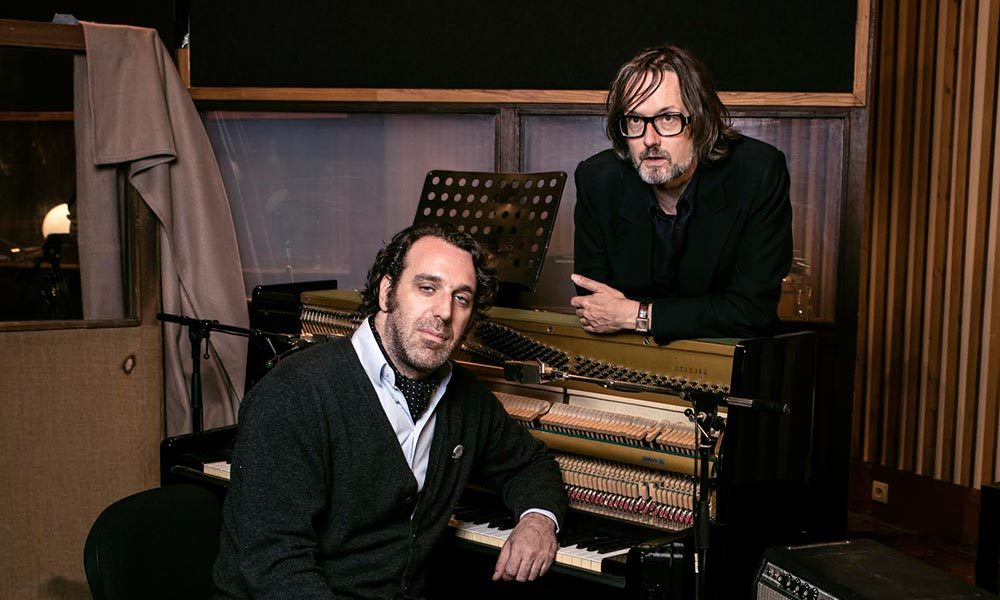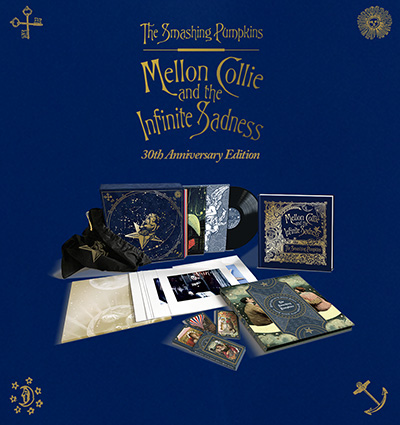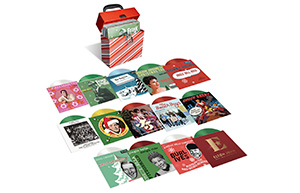‘Room 29’: “We’re Talking About The Birth Of Celebrity Culture” Says Jarvis Cocker
Jarvis Cocker discusses his collaboration with with Chilly Gonzales, ‘Room 29’, and the golden age of Hollywood which inspired it.

Five years in the making, Room 29, the collaborative project between latter-day Renaissance man Jarvis Cocker and musical polymath, pianist/rapper/producer/songwriter Chilly Gonzales, was as alluring and dramatic as the world that inspired it.
Named after the real-life Room 29 in the Chateau Marmont, a storied hotel that opened on Sunset Boulevard in 1929 and immediately became a playground for Hollywood’s rich and famous, Room 29 brings to life some of the legendary tales that give the room a unique mystique. Fascinated its history, and drawn to a piano that sits in its corner, Cocker and Gonzales worked up a song cycle which brings the golden age of cinema to life – and exhumes some of Hollywood’s most infamous legends.
Listen to Room 29 on Apple Music and Spotify.
“We’re talking about the birth of celebrity culture”
“We’re talking about the birth of celebrity culture and stuff like that, I suppose,” Cocker says. “Of how you get an image of someone that you see on the screen, but you can’t marry up to the real person.”
His use of the word “marry” is all too apt. One of the most infamous tales to come from the Marmont is of Jean Harlow and Paul Bern’s honeymoon – a “farrago”, as Cocker puts it, during which the couple stayed, of course, in Room 29. “It didn’t work out,” Cocker says, with no little understatement. “This guy had married the greatest sex symbol of the world at that time and – maybe he was just overwhelmed by it and found himself unable to consummate the marriage and ended up killing himself.”
The story feeds into a tragic undercurrent that pervades much of the record, including the story of Howard Hughes, a playboy, film mogul and pioneering aviator who “had all the trappings that everybody is scrabbling for – more money than anyone could imagine and all that kind of thing – but ended up going completely crackers”.
Underneath the glitz and glamour, and the headline-grabbing tales of starlets snorting cocaine off pianos, Cocker was “looking for the human side to it”. “That’s the thing that blew me away when I first went there and was in Hollywood,” Cocker recalls. “To think that all those films that came out at that time were made in this one place and they travelled the whole world: it established a language, and it was people who invented it. It didn’t just naturally occur.”
“It unleashed all kind of desires and emotions”
Just as Room 29 itself evokes wonder at a bygone world, Cocker is fascinated by how the very first films would have affected an audience. “I think when those first movies came out and people went into a cinema and saw the screen light up and these larger-than-life images of other people, I do think that tapped into something really primal in people, and it’s like it unleashed all those kind of desires and emotions that otherwise might not have got tapped into.”
One song in particular, ‘Trick Of The Light’, captures this wide-eyed wonder with a shift into a full-blown orchestra. “That’s the moment when we break the rules of the rest of the record,” Cocker says. “We wanted it to sound like it could have been recorded in the hotel room, so hopefully it’s quite intimate and you’re in the room with the piano and me. But there’s a point in that song where we suddenly go widescreen, and there’s an orchestra, and the piano suddenly becomes a grand piano.”
Cocker continues: “Hopefully that bit is effective in getting across this thing that, even though you know how it works, there’s something so arresting about the artifice of the era and those films that it’s still exciting when you allow yourself to be carried away by it. You can’t live there. It’s such a beautiful, enticing thing that you kind of think, Maybe one day I’ll be able to live in a world like that. But it never existed.”
“You could just have everything all at once”
Another song, ‘Ice Cream As Main Course’, evokes the lifestyle of the Hollywood elite themselves, and took for its inspiration an old couple in their 90s, who Cocker saw dining at the iconic Musso And Frank Grill, which opened in 1919 on Hollywood Boulevard. “The woman had this turban on and these giant sunglasses and a very glamorous dress, and the guy was also very dressed up,” Cocker recalls. “Because I’d been thinking about all this stuff, I really believed that this was like two of the last surviving members of the old Hollywood aristocracy out for something to eat.”
The next time Cocker looked over, their table was covered in plates of food: “They’d ordered everything to come at the same time, so there were bowls of soup, plates of pasta and steaks, and then ice cream sundaes all on the table. This image really amazed me and kind of made me think that that was, in a way, the Hollywood dream right there – that you could just have everything all at once.”
Cocker and Gonzales worked these observations up into a stage show which they presented in Hamburg as a work-in-progress in 2016, and which they will performed at London’s Barbican Theatre following year, before taking the production to Berlin and Paris. “We’d got music and I’d been working on film clips and stuff like that,” Cocker says. “The order of the songs as you hear them on the record is basically how they’re performed in the show.”
“I’d better make every word count”
Like a Brill Building songwriting duo, Gonzales and Cocker embraced their separate roles, the former taking on responsibility for the music, the latter for the lyrics. “It’s a little bit like the movies we reference,” Cocker notes. “There was a period when there was a studio system and there was a way to make songs and there was a way to make films, and it was kind of semi-industrialised. But the things that came out of that period are still casting a spell over people today, and people are still fascinated by how those songs got written and how those films got made.”
Gonzales’ piano style was perfect for tapping into that bygone era. “I’ve always found that there was some kind of a tinge of Hollywood melancholy to some of his instrumental piano pieces,” Cocker says. “Normally, with Pulp records, we all chipped in with the music and it had been my job to do the words.” This time, however, Cocker’s role “was to make words fit with what he’s written”. “I thought, well, if that’s my job, I’d better make every word count.”
Which he did. Each song on Room 29 contains its own narrative, working both as a standalone vignette while also filling in the bigger picture. The result is a project that straddles both the theatrical and musical worlds: perfect for the stage, but also a cohesive album that works in its own right. Despite turning it into a theatrical spectacle, however, Cocker has no designs on infiltrating Hollywood himself.
“I’ve been asked to be in films and stuff, and I’ve always been really bad,” he says. “People often offer me roles in things because they see you on stage and they see you performing, so they think, Oh, well, he’s confident.”
But, Jarvis concludes: “I’m still trying to work out the role of myself. So the idea of attempting to put myself in in someone else’s mind is impossible, really.”
Room 29 can be purchased can be purchased here.














